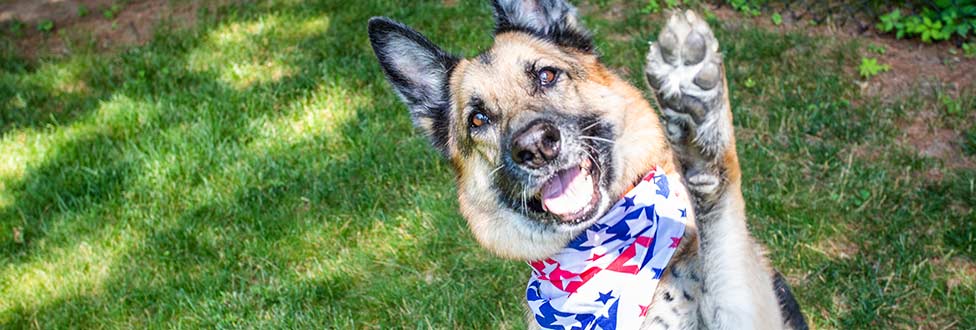Protecting Pets During the July 4 Holiday Weekend
Fireworks can trigger anxiety in pets
Fireworks and July 4th go hand-in-hand, however, this is also a time of great anxiety for our pets, and the Animal Rescue League of Boston (ARL) reminds pet owners to take extra steps to ensure our pets are safe and calm during the upcoming holiday weekend.
While exciting for us, fireworks can cause behavioral issues in our pets that may last for a long time, and signs to watch out for include: shaking, drooling, howling or barking, pacing, trying to find a place to hide, and loss of bladder control, among others.
When stressed and exhibiting signs of fear, dogs may potentially redirect that fear into an aggressive behavior. Additionally, the loud noises and bright lights of fireworks may also cause a dog to run off. During this time of year, shelters around the nation typically see an increase in lost dog reports.
The first and easiest step to take is to make sure that your pet is wearing a collar with identification tags, and if they are microchipped, to be sure that the contact information is current and correct; as a precaution just in case they become lost.
You can also set them up in a quiet, temperature-controlled room with some of their favorite toys, turn on some soft music, a television, or a white noise machine to help drown out the noises caused by fireworks.
If you are concerned about the bright lights, you can also move your pet into a room with no windows, however, you may need to prepare for the chance they may run when the door is opened.
There are also medications to help reduce stress and anxiety, however, this is something that needs to be discussed with your veterinarian to determine which, if any, medication would be appropriate for your pet.
Additional Summer Safety Tips
Keep your pet safe and healthy by following these important basic guidelines:
- Prevention is always your best bet. Whenever possible, leave your pet at home in a cool humidity and temperature-regulated room.
- If your pet must be outdoors, find a shady spot with ample air flow to prevent overheating.
- Hydration is key, so keep a bowl of cold water accessible at all times.
- Limit exercise to the morning or evening hours when temperatures are at their coolest.
- Never leave your pet alone in a parked car — even with the air conditioner on or the windows cracked. Remember, when the temperatures rise, it’s Too Hot for Spot®

